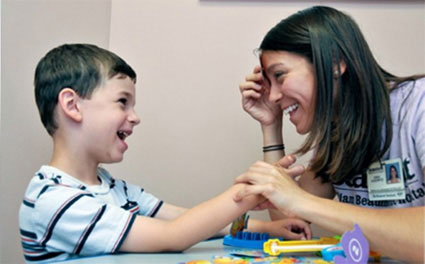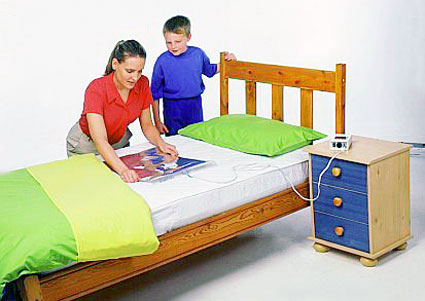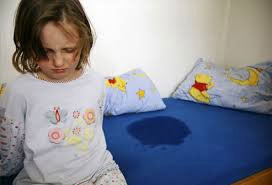A pervasive developmental disorder can greatly affect a childs social functioning. Read on to understand more about them. Revathi was worried about her two-year-old son Rahul. Rahul had not yet spoken a single word. Also, there were times when someone would speak to him and he would not show any interest in what was being said. Friends and relatives tried to make her feel better by saying things like hes just a late bloomer and dont worry, he will be talking in no time. Even her general practioner did not feel there was any problem. Yet, Revathi could not help feeling something was wrong. She decided to begin taking her son to different specialists. Finally, after countless visits to different doctors, Rahul was diagnosed as suffering from a pervasive developmental disorder. Today, Rahul is almost five and undergoes regular therapy sessions to help him deal with his condition. He has shown great improvement in his behaviour. In this articleWhat is a pervasive developmental disorder?What are the symptoms of a Pervasive Developmental Disorder?How is it diagnosed?What are the treatments available? What is a pervasive developmental disorder? Pervasive developmental disorder (PDD) is a type of disorder that affects an individuals ability to develop normal communication and socialization skills. The actual term itself does not refer to one specific disorder but is the general name given to an entire category of disorders. A person cannot be diagnosed as simply suffering from PDD. A pervasive developmental disorder may be further diagnosed as any one of the following disorders: Autism Rett syndrome Childhood disintegrative disorder Asperger syndrome Pervasive Developmental Disorder Not Otherwise Specified (PDD-NOS). This is a generalised term for those disorders, which cannot be diagnosed in one of the earlier categories. Of these disorders, autism is the most serious one. Pervasive developmental disorders do not physically affect an individual. A person suffering from a PDD can live a long and healthy life. What are the symptoms of a Pervasive Developmental Disorder? Since a PDD is associated with social skills, it has no physical symptoms. Signs that a person is suffering from a PDD are purely behavioural. Some of the symptoms associated with a PDD are: Repetitive behaviour or body movements such as rocking back and forth Difficulty in understanding language and speech development Inability to deal with any change in daily routine or being in a new surrounding Inability to relate to people, normal tasks, and objects Unusual behaviour with regard to objects and toys How is it diagnosed? Parents may notice symptoms of a PDD right from the time the child is an infant. However, these are not very obvious and tend to be overlooked. A pervasive developmental disorder can strike right from birth or anytime before a child has reached three years of age. It can be difficult to diagnose because a diagnosis has to be made on the basis of a behavioural analysis rather than medical tests. A pervasive developmental disorder can only be diagnosed by a qualified specialist. Occasionally, a learning disability may be misdiagnosed as a pervasive developmental disorder. Among doctors, there may be confusion regarding diagnosis. Many doctors erroneously use PDD as a short form to refer to PDD-NOS. Some doctors are reluctant to diagnose a child as suffering from a specific disorder and hence use the term PDD. This is especially common when a doctor is trying to diagnose a toddler. He may not want to misdiagnose a child as suffering from autism. Also, a doctor may sometimes want to wait and see if the childs condition will improve with age, before making a final diagnosis. What are the treatments available? A pervasive developmental disorder is a lifelong condition and cannot be cured. However, there are medicines available to deal with some of the behavioural problems associated with them. In addition to medication, an individual will usually also require specialised therapy to help him develop some social skills. Individuals suffering from a PDD almost always have normal mental function. Some of them may even demonstrate a high intelligence quotient (IQ). Children with mild disorders can function reasonably well in a normal school setting as long as they get some additional support. Other children may require smaller classes or need specialized teaching, which caters to their needs. Being diagnosed with a pervasive developmental disorder is not the end of the world. There are plenty of organisations available to help you find the best mode of treatment for your child. With the advances in medicine being made, there is no reason why an individual cannot live a normal life in the near future.
A pervasive developmental disorder can greatly affect a child's social functioning. Read on to understand more about them. Revathi was worried about her two-year-old son Rahul. Rahul had not yet
spoken a single word. Also, there were times when someone would speak to him and he would not show any interest in what was being said. Friends and relatives tried to make her feel better by saying things like 'he's just a late bloomer' and 'don't worry, he will be talking in no time'. Even her general practioner did not feel there was any problem. Yet, Revathi could not help feeling something was wrong.
She decided to begin taking her son to different specialists. Finally, after countless visits to different doctors, Rahul was diagnosed as suffering from a pervasive developmental disorder. Today, Rahul is almost five and undergoes regular therapy sessions to help him deal with his condition. He has shown great improvement in his behaviour.
What is a pervasive developmental disorder?
Pervasive developmental disorder (PDD) is a type of disorder that affects an individual's ability to develop normal
communication and socialization skills. The actual term itself does not refer to one specific disorder but is the general name given to an entire category of disorders. A person cannot be diagnosed as simply suffering from PDD. A pervasive developmental disorder may be further diagnosed as any one of the following disorders:
- Autism
- Rett syndrome
- Childhood disintegrative disorder
- Asperger syndrome
- Pervasive Developmental Disorder Not Otherwise Specified (PDD-NOS). This is a generalised term for those disorders, which cannot be diagnosed in one of the earlier categories.
Of these disorders, autism is the most serious one. Pervasive developmental disorders do not physically affect an individual. A person suffering from a PDD can live a long and healthy life.
What are the symptoms of a Pervasive Developmental Disorder?
Since a PDD is associated with social skills, it has no physical symptoms. Signs that a person is suffering from a PDD are purely behavioural. Some of the symptoms associated with a PDD are:
- Repetitive behaviour or body movements such as rocking back and forth
- Difficulty in understanding language and speech development
- Inability to deal with any change in daily routine or being in a new surrounding
- Inability to relate to people, normal tasks, and objects
- Unusual behaviour with regard to objects and toys
How is it diagnosed?
Parents may notice symptoms of a PDD right from the time the child is an infant. However, these are not very obvious and tend to be overlooked. A pervasive developmental disorder can strike right from birth or anytime before a child has reached three years of age. It can be difficult to diagnose because a diagnosis has to be made on the basis of a behavioural analysis rather than medical tests.
A pervasive developmental disorder can only be diagnosed by a qualified specialist. Occasionally, a learning disability may be misdiagnosed as a pervasive developmental disorder. Among doctors, there may be confusion regarding diagnosis.
Many doctors erroneously use PDD as a short form to refer to PDD-NOS. Some doctors are reluctant to diagnose a child as suffering from a specific disorder and hence use the term PDD. This is especially common when a doctor is trying to diagnose a toddler. He may not want to misdiagnose a child as suffering from autism. Also, a doctor may sometimes want to wait and see if the child's condition will improve with age, before making a final diagnosis.
What are the treatments available?
A pervasive developmental disorder is a lifelong condition and cannot be cured. However, there are medicines available to deal with some of the behavioural problems associated with them. In addition to medication, an individual will usually also require specialised therapy to help him develop some social skills.
Individuals suffering from a PDD almost always have normal mental function. Some of them may even demonstrate a high
intelligence quotient (IQ). Children with mild disorders can function reasonably well in a normal school setting as long as they get some additional support. Other children may require smaller classes or need specialized teaching, which caters to their needs.
Being diagnosed with a pervasive developmental disorder is not the end of the world. There are plenty of organisations available to help you find the best mode of treatment for your child. With the advances in medicine being made, there is no reason why an individual cannot live a normal life in the near future.


































